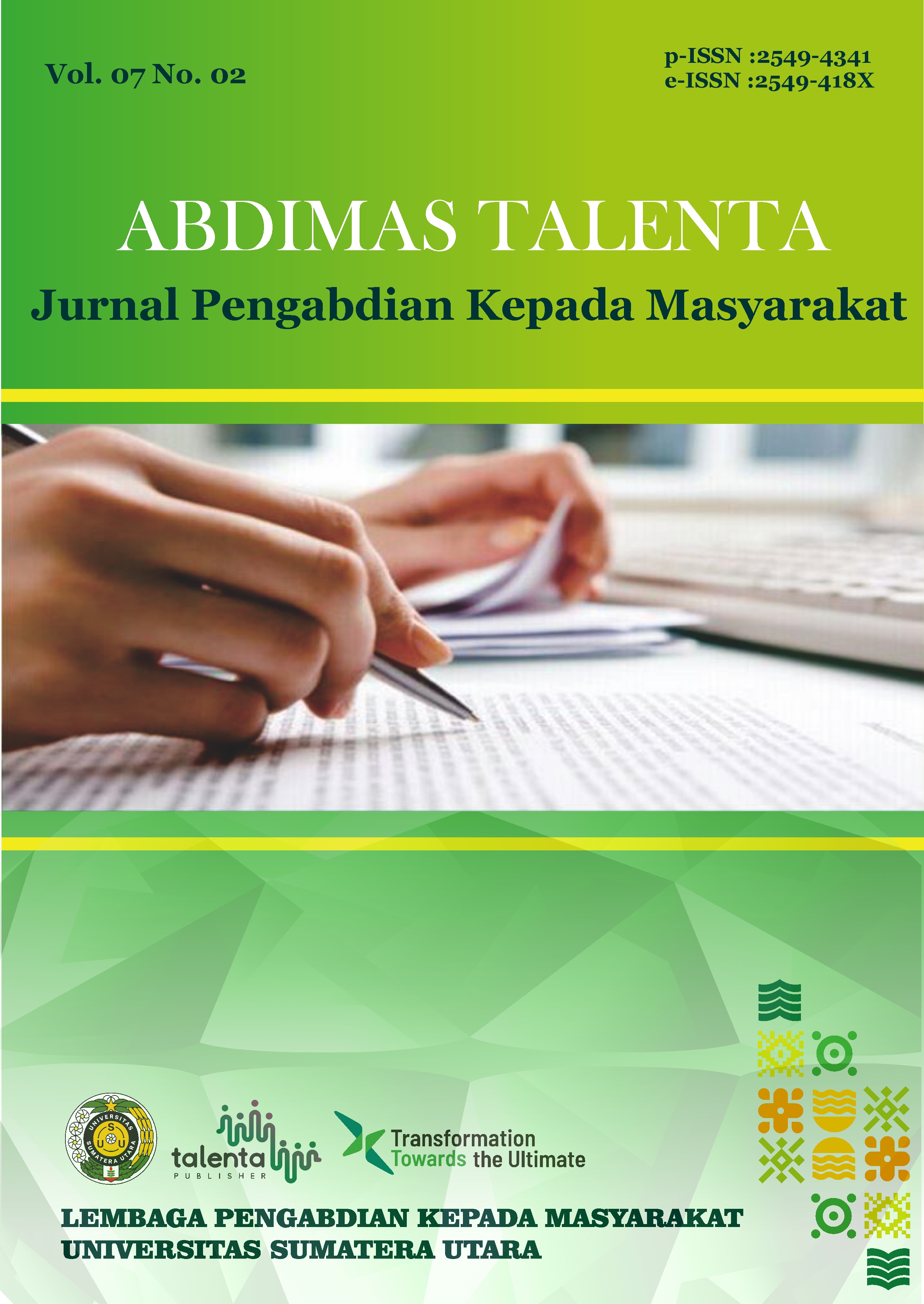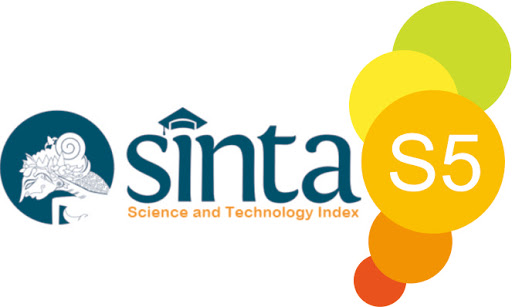Empowerment Through Understanding Religious Harmony in Timbang Deli Urban Village
DOI:
https://doi.org/10.32734/abdimastalenta.v7i2.8714Keywords:
Empowerment, Harmony, Religious PeopleAbstract
The Republic of Indonesia must retain its unity above all else, which requires religious harmony. However, every candidate for the Regional Head Election in Medan City still faces a severe challenge related to identity and religion. Thus, everyone in Medan City still has a responsibility to realize harmony and peace for religious communities. In the Medan Amplas District of Medan City's Timbang Deli Village, this activity took place. Understanding religious freedom and religious concord is the primary goal of this activity. Second, the contribution of local authorities to fostering religious peace. The third is a plan to promote religious harmony. It is hoped that the participants of the activities and conversations can understand the information presented using the participatory method. The outcomes of this initiative show the community's commitment to sharing responsibilities in each Timbang Deli Village neighborhood in order to raise public awareness. In addition, coordinate to talk to the authorities in great detail. In addition, achieving inter-religious harmony requires internalizing an attitude of tolerance, upholding brotherly ties, showing respect and appreciation for one another, placing full faith in one another without bias, confirming and clarifying any information learned, and being able to act fairly. for the benefit of the whole society.
Downloads
Downloads
Published
Issue
Section
License
Copyright (c) 2022 ABDIMAS TALENTA: Jurnal Pengabdian Kepada Masyarakat

This work is licensed under a Creative Commons Attribution-ShareAlike 4.0 International License.
The Authors submitting a manuscript do so on the understanding that if accepted for publication, copyright of the article shall be assigned to Jurnal Abdimas TALENTA as well as TALENTA Publisher Universitas Sumatera Utara as the publisher of the journal.
Copyright encompasses exclusive rights to reproduce and deliver the article in all forms and media. The reproduction of any part of this journal, its storage in databases and its transmission by any form or media, will be allowed only with written permission from Jurnal Abdimas TALENTA.
The Copyright Transfer Form can be downloaded here.
The copyright form should be signed originally and sent to the Editorial Office in the form of original mail or scanned document.












